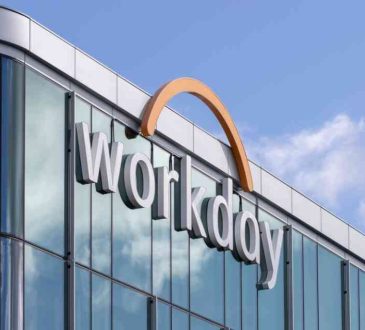Be Pillars of Support to Employees in Hybrid Work Environments

The needs of the hybrid workspace and its employees may have outgrown conventional HR systems and responsibilities. But HR will remain an essential, helpful asset if leaders are willing to rethink their purpose and contributions.
In under two years, knowledge workers have become surprisingly untethered to traditional office setups — and surprisingly OK with the changes. All things considered, employees have shown remarkable resilience when it comes to figuring out how to keep workflows chugging along for their companies.
Case in point: Between March and June 2020, Zoom went from a website to a full-fledged verb. Accordingly, remote employees bought ring lights for better lighting, made sure to check acoustics before meetings, and got off-the-charts creative with their backgrounds. (Pee-wee’s Playhouse, anyone?) Team members who worked in the office at least part of the time paid attention to finding well-lit and isolated rooms for videoconferencing, too.
Yet Zooming is only the tip of the “hybrid workspace” iceberg. On-the-go employees work out of their cars and shop for battery-powered portable printers. They’re asking their employers to help cover the cost of residential high-speed internet connections and an ergonomic home office setup. And they’re not fazed by the fact that some of their companies — including Salesforce and other big players — are choosing to shut down empty offices.
These are all positive outcomes. Nevertheless, they’ve thrown a wrench into the classic human resources department role. As a result, HR has the opportunity to reinvent its purpose.
Supporting Remote Employees by Letting Go of Old HR Habits
To become a support system to modern hybrid workers, HR must first understand that it can’t be what it once was. Accenture notes that 63% of high-growth organizations are hybrid-based. The reason they’re high-growth isn’t solely because their knowledge workers are remote. It is because those workers are buoyed by management and administration that’s ready to provide them with the resources they need.
It can be challenging for HR leaders to wrap their heads around what those resources should be, particularly when their workforces are scattered. In Deloitte’s “2021 Return to Workplaces” survey, around 32% of participants worried about maintaining a strong hybrid corporate culture. Another 19% said they were concerned about fostering collaboration among spread-out personnel.
Addressing both of those concerns will require HR to ask (and answer) tough questions about itself to grow beyond its antiquated position of compliance officer and management-employee buffer. For instance, how are remote workers looped into important decisions? How are sick days accounted for and reimbursed? What happens when intrinsically motivated virtual workers start to think more like senior leaders and push back against artificial boundaries?
The bottom line is that the old tropes of “business as usual” just won’t work anymore. So if HR tries to reach into its aging tool kit for solutions, modern knowledge workers won’t respond. Instead, HR leaders need to have the courage to reinvent themselves a la field influencers like Brené Brown, who advocates for leveraging the evidence-based social science world and getting vulnerable.
In the past, HR may not have shown vulnerability. They’d hold on to old traditions and default to in-office norms when dealing with remote and nontraditional employees. Now, HR may have no choice but to change that if it wants to remain relevant in the eyes of hybrid knowledge workers.
Folding HR Into the Needs of the Hybrid Workspace
Is this an easy mind shift? Not really. Nonetheless, it’s one that’s important for HR leaders to make — starting with a few mental and operational steps.
- View hybrid workspace challenges through opportunity goggles.
Executive advisor Liz Wiseman calls people who put a positive spin on potential problems “impact players.” In her experience, impact players aren’t afraid to fail in the face of change because they don’t fear it. Rather, they look at change as inevitable and the seed for future improvements.
HR leaders in hybrid organizations can benefit from looking at the modern working world as a big social science experiment. They can challenge truisms (e.g., experiment with new start and end times, new equipment, etc.) and adopt an iterative “design thinking” approach to HR management by taking a step back. - Learn design thinking principles.
Design thinking involves understanding end users to create solutions that meet their deepest needs. It requires a high degree of empathy and a willingness to acknowledge and update outdated concepts and decisions.
Although design thinking is born out of design and engineering mindsets, it also applies to HR. In an interview, Josh Bersin, author and principal from Bersin Associates, explained that workspace design thinking “transforms HR from a ‘process developer’ into an ‘experience architect’” role. In other words, it transforms HR team members into responsive, compassionate consultants eager to solve problems from a people-centric view. - Reevaluate how HR can benefit all stakeholders.
Becoming an asset to all employees is the responsibility of today’s HR teams. First, though, HR leaders need to talk about their new functions. Where do their boundaries extend? What part do they play in improving the customer experience, not just the employee experience? HR’s ability to cultivate a safe and informed workplace pays dividends during their workers’ customer engagement, so continuing to focus on those efforts is a must.
The door is wide open for HR to step in and contribute in novel ways. This allows ambitious HR personnel to expand the scope of what they could do before 2020. They may serve as liaisons rather than rule setters and data collection sources to inform short-term and long-term business plans. At this moment, guidelines are being thrown out left and right. Why shouldn’t HR reap the benefits of a complete reset?
The hard truth is that the needs of the hybrid workspace and its employees may have outgrown conventional HR systems and responsibilities. That’s fine — HR will remain an essential, helpful asset if leaders are willing to rethink their purpose and contributions.
Written by Pack Matthews.
Have you read?
# Best CEOs In the World Of 2022.
# TOP Citizenship by Investment Programs, 2022.
# Top Residence by Investment Programs, 2022.
# Global Passport Ranking, 2022.
# The World’s Richest People (Top 100 Billionaires, 2022).
Add CEOWORLD magazine to your Google News feed.
Follow CEOWORLD magazine headlines on: Google News, LinkedIn, Twitter, and Facebook.
Copyright 2024 The CEOWORLD magazine. All rights reserved. This material (and any extract from it) must not be copied, redistributed or placed on any website, without CEOWORLD magazine' prior written consent. For media queries, please contact: info@ceoworld.biz








